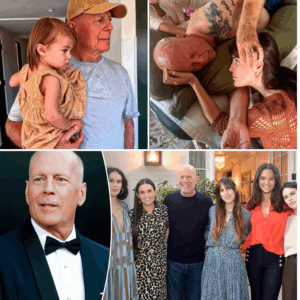
In the world of tech titans and space pioneers, Elon Musk stands as an unparalleled figure—a man whose name is synonymous with innovation, controversy, and staggering wealth. From revolutionizing electric vehicles with Tesla to pushing humanity toward the stars with SpaceX, Elon’s journey from South African roots to global dominance has been dissected in countless books, documentaries, and headlines. But lurking just beyond the glare of his spotlight is a story far less told: that of his younger brother, Kimbal Musk. While Elon commands the world’s attention, Kimbal has quietly amassed his own fortune, becoming a billionaire in his own right. Yet, surprisingly, many people remain unaware of this sibling’s remarkable path, one intertwined with Elon’s but distinctly his own. This is the tale of Kimbal Musk—the chef, entrepreneur, and investor who turned a modest startup windfall into a diversified empire, all while supporting his brother’s ventures and carving out a niche in sustainable food and philanthropy.
Born on September 20, 1972, in Pretoria, South Africa, Kimbal James Musk grew up in the same turbulent household as Elon. The Musk family was no stranger to ambition and adversity. Their father, Errol Musk, was an engineer and pilot, while their mother, Maye Musk, was a model and dietitian who instilled a sense of resilience in her children. The brothers, along with their sister Tosca, navigated a childhood marked by their parents’ divorce and the challenges of apartheid-era South Africa. Elon, the elder by about a year, was the introspective dreamer, often lost in books about space and technology. Kimbal, on the other hand, was more outgoing, with a passion for adventure and community. These traits would later define their entrepreneurial styles—Elon as the relentless visionary, Kimbal as the collaborative builder.
The brothers’ first major collaboration came in 1995 when they founded Zip2, a software company that provided online city guides and business directories for newspapers. At the time, the internet was in its infancy, and the concept of digital mapping and searchable local content was groundbreaking. They started the company in Palo Alto, California, the heart of Silicon Valley, with minimal resources. Reports suggest their father contributed around $28,000 to get them off the ground—a sum that, in the mid-1990s, carried significant weight. Back then, most startup investments hovered in the hundreds of thousands, not the millions that flood the tech scene today. This modest seed money fueled late-night coding sessions and relentless hustling. Elon handled much of the technical side, while Kimbal focused on sales and partnerships, charming newspaper executives into adopting their platform.
Zip2 quickly gained traction. It partnered with major publications like The New York Times and Chicago Tribune, offering features like door-to-door directions and local business listings—precursors to modern services like Google Maps and Yelp. The company expanded rapidly, securing venture capital that allowed it to scale. After just four years, in 1999, Compaq Computer Corporation acquired Zip2 for approximately $307 million in cash, one of the largest deals for an internet company at the time. This sale was a watershed moment for the Musks. Elon, holding a larger stake, walked away with around $18 million, while Kimbal pocketed about $10 million. At ages 28 and 26 respectively, they were suddenly multimillionaires in a era when such exits were rare.
What happened next highlights the divergence in their paths. Elon, ever the risk-taker, poured his earnings into a new venture called X.com, an online banking platform aimed at disrupting traditional finance. This company eventually merged with Confinity, a rival led by Peter Thiel, to form PayPal, which eBay later bought for $1.5 billion in stock. Elon’s share from that deal catapulted him into even greater wealth, setting the stage for his future empires in Tesla, SpaceX, and beyond. Kimbal, however, took a more supportive and diversified approach. Instead of launching a solo tech giant, he channeled much of his $10 million into backing Elon’s ambitious projects. He invested early in Tesla, the electric car company that would redefine the automotive industry, and SolarCity, a solar energy provider that Tesla later acquired. These investments not only demonstrated familial loyalty but also proved prescient. As Tesla’s stock soared and SpaceX achieved milestones like reusable rockets, Kimbal’s stakes grew exponentially. Today, he holds significant shares in both companies, contributing to his status as a billionaire—a fact that often flies under the radar.
But Kimbal’s story isn’t just about riding Elon’s coattails. He’s forged his own identity as a leader in the food and sustainability space. Drawing from a near-fatal skiing accident in 1999 that left him with a broken neck and a renewed appreciation for life, Kimbal shifted focus toward healthier living and community-driven initiatives. He pursued culinary training and co-founded The Kitchen Restaurant Group in 2004 with Hugo Matheson. Starting with a single farm-to-table restaurant in Boulder, Colorado, the group expanded to multiple locations across Colorado, Chicago, and Memphis. The Kitchen emphasizes fresh, locally sourced ingredients, promoting a “community through food” philosophy. This venture wasn’t just a passion project; it became a profitable business, attracting investors and earning acclaim for its sustainable practices.
Kimbal’s entrepreneurial spirit extended further into urban farming and education. In 2011, he launched Big Green (formerly The Kitchen Community), a nonprofit that builds learning gardens in schools across the U.S. The organization aims to connect children with real food, teaching them about nutrition and agriculture in underserved communities. By 2025, Big Green has installed thousands of gardens, impacting over a million students. Kimbal’s vision here is holistic: he believes that fixing the food system can address broader issues like obesity, environmental degradation, and social inequality. To scale this, he co-founded Square Roots in 2016, a vertical farming company that grows produce in shipping containers using hydroponics. This tech-driven approach allows year-round farming in urban areas, reducing food miles and waste. Square Roots has partnered with major retailers and continues to innovate in controlled-environment agriculture.
Beyond business, Kimbal has been a steadfast presence in Elon’s world. He serves on Tesla’s board of directors, providing input on strategy and governance. Their relationship, while occasionally strained by public family dramas—like disputes over their father’s contributions—remains close. Kimbal has defended Elon during controversies, such as the 2018 Twitter takeover (now X), and shares his brother’s optimism about humanity’s future. Yet, Kimbal’s style is markedly different: less combative, more grounded. He’s often seen at events promoting regenerative agriculture or hosting farm dinners, far from the Mars colonization debates that define Elon.
Financially, Kimbal’s net worth has ballooned thanks to his early bets. While exact figures fluctuate with market conditions, his holdings in Tesla alone—over a million shares—plus equity in SpaceX and his own ventures, place him firmly in billionaire territory. This wealth accumulation is a testament to smart investing and patience. Unlike Elon, who frequently reinvests everything into moonshot projects, Kimbal has balanced high-risk tech bets with stable, impact-focused enterprises. His restaurant group generates steady revenue, and his philanthropy enhances his personal brand, attracting like-minded partners.
What makes Kimbal’s story so compelling is its relatability amid the extraordinary. In a family of outliers, he’s the one who chose a path less flashy but equally influential. While Elon tweets about neuralinks and cybertrucks, Kimbal advocates for soil health and community meals. Many overlook him because he doesn’t court the same level of media frenzy, but that’s precisely his strength. He’s built a life where success isn’t measured solely by market caps but by tangible change—like the child who plants their first vegetable or the diner savoring a meal that supports local farmers.
In the end, Kimbal Musk reminds us that billionaires come in different flavors. Not all seek the throne of innovation; some prefer the kitchen table. As Elon’s ventures continue to reshape industries, Kimbal’s quieter empire ensures that the Musk legacy includes nourishment for body and soul. And in a world obsessed with the next big thing, perhaps the real surprise is that this billionaire brother has been there all along, thriving in the shadows.





